Farm visit: A “35-hour sow” for France’s labour market
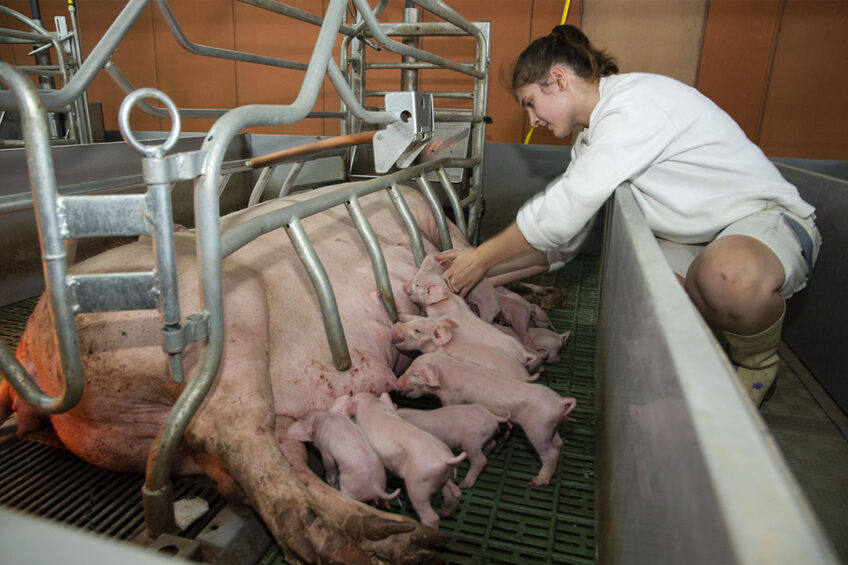
Nicolas Gigou is a sow producer in central France, producing parent stock for commercial farms. He recently chose to repopulate his houses with Special Pathogen Free (SPF) grandparent stock, with great results. He says, “Working with these animals is very relaxing.”
The way of breeding pigs has changed considerably on Nicolas Gigou’s breeding facility. Just over 2 years ago, the breeder, located in France’s Centre-Val de Loire region, opted for a total depop-repop as he worked together with the French breeding company Axiom.
Since then, the houses have been populated with high health status sows. These are inseminated with semen of Large White boars. That combination leads to the “Vénus F1” sow, as the breeding company calls them, which is being hailed as a “35-hour sow”. That is because in France, labour is hard to come by and the law stipulates that livestock farm staff have a 35-hour working week. Hence, all work must be completed within that time frame. To meet the labour shortage, Axiom started to breed and market the Vénus sow.
The breeding company claims that with its Vénus, foster sows and milk replacers will be superfluous, and the transfer of piglets will only be necessary occasionally. Among other things, the sows have been selected for their maternal characteristics and having 16 functional teats, so that they can easily raise 14 or 15 piglets without the pig producer having to step in. Other claims include that pre-weaning mortality remains below 10% and that a litter gains an average of 3 kg per day during lactation.
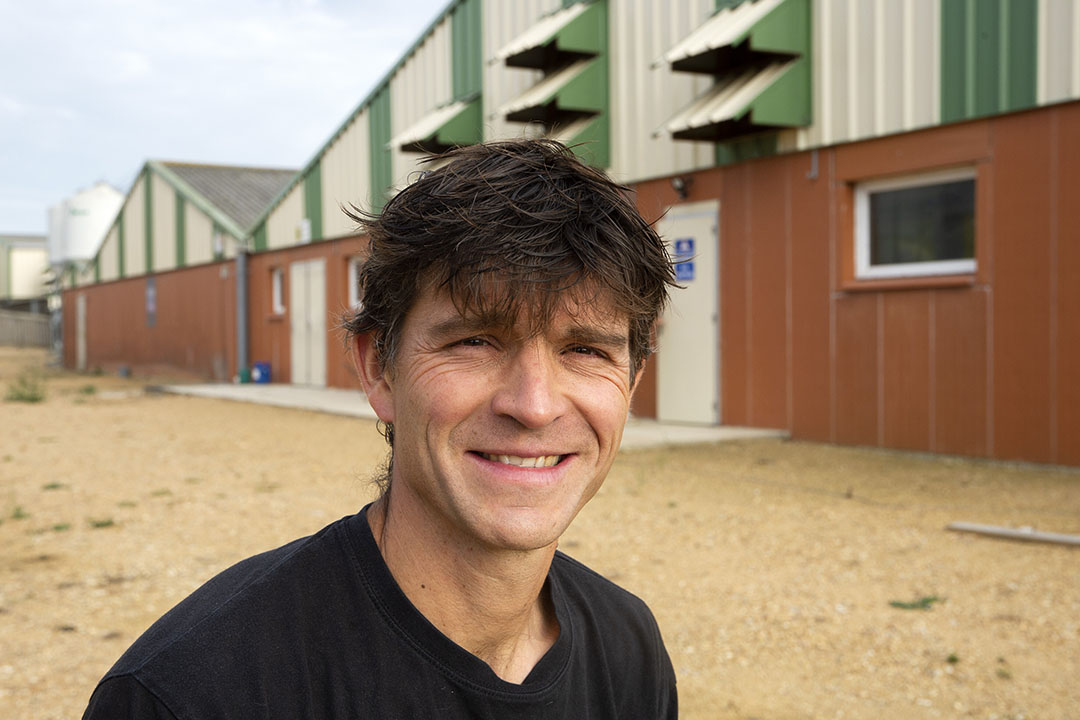
Working with calm sows
Mothers of the Vénus sows are “Axa” sows, which form the heart of the Axiom breeding programme. These grandparent (GP) sows are a crossbreed consisting of several genetics – the exact composition is a well-kept secret. It may not come as a surprise that the Vénus sows’ properties largely resemble those of their mothers.
For Gigou, this is a bonus as he finds them very pleasant to work with. “The ease of work and animal health give a lot of job satisfaction. That makes me happy, as well as my staff and also the buyers of my F1 gilts. Working with these SPF animals is very relaxing.”
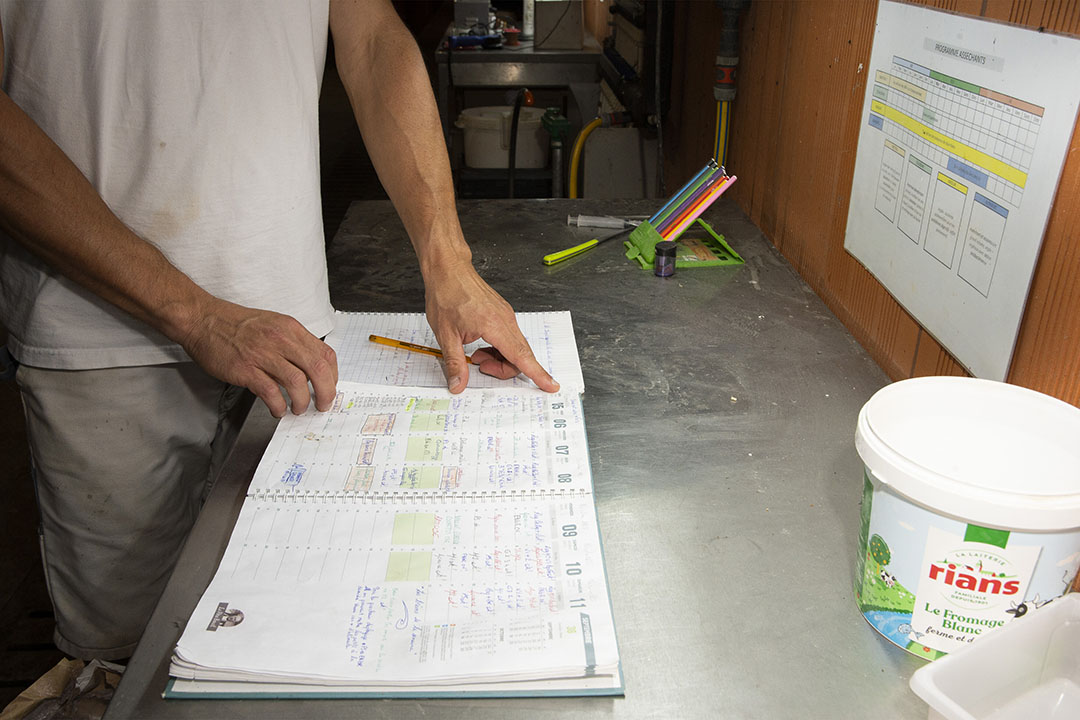
It is easy to see that the sows are very calm. Even if staff need to be inside a farrowing pen for a while, the animals remain calm and the piglets continue to drink.
The farm works with a 3-week system. There are 7 production groups, and weaning takes place at 28 days. As Gigou appreciates order and overview, each production group has its own department in the sow barn. At the time of the visit, a temporarily empty gestation room was perfectly clean. In addition, the central corridor is also pristine, with only the really necessary tools lying around. There’s no stray broom or feed wagon to be found. Gigou explains, “We immediately clear away everything that is no longer needed in the barn. I like working that way.”
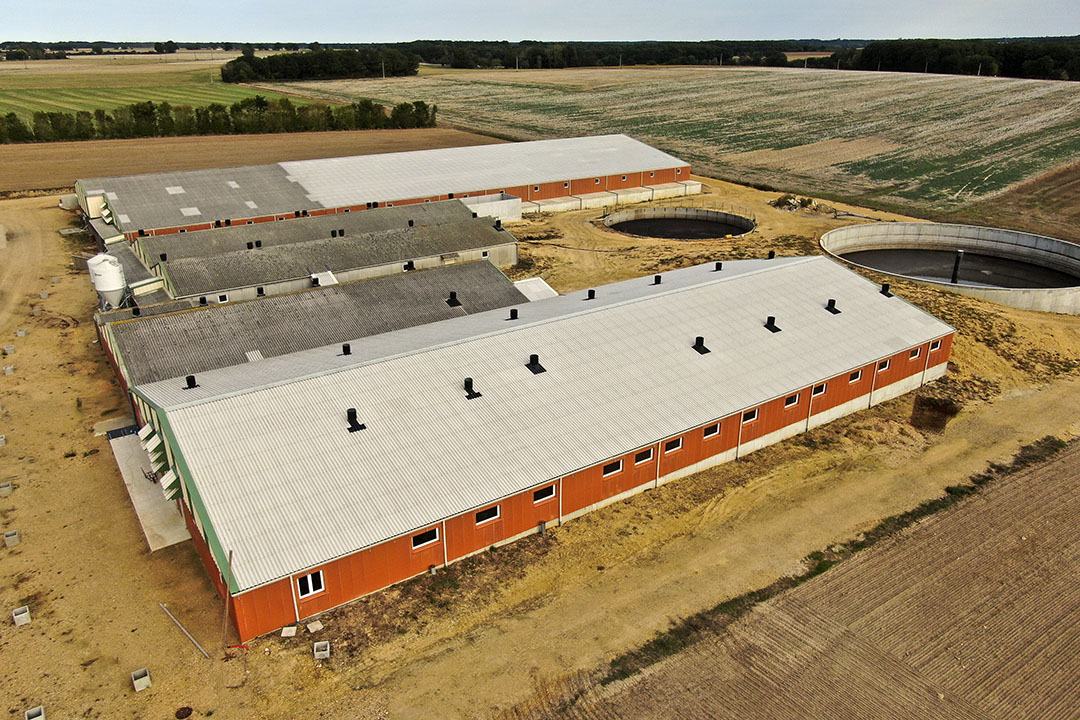
Remaining disease free
Keeping the animals healthy should not be very difficult at this closed breeding farm, provided that protocols are followed. There is no other pig farm within a 10 km radius. The young GP sows-to-be (Axa sows) weigh 8 kg when they arrive on the farm. They stay in a quarantine house for the first 5 weeks, which is isolated from the rest of the farm. The pig producer himself does not enter the quarantine house either. It is possible to observe and feed the newly delivered animals from the outside.
The GP gilts are inseminated for the first time at a weight of 165 kg or more. The farm uses the hormonal treatment Regumate to make sure all sows are in heat simultaneously. Before insemination, Gigou weighs the sows and determines back fat thickness. Backfat thickness is measured once again when the animals enter the farrowing pen. Before lactation, the average measure of sow backfat is 17 mm. After weaning, the sows still have about 13 mm of backfat left.
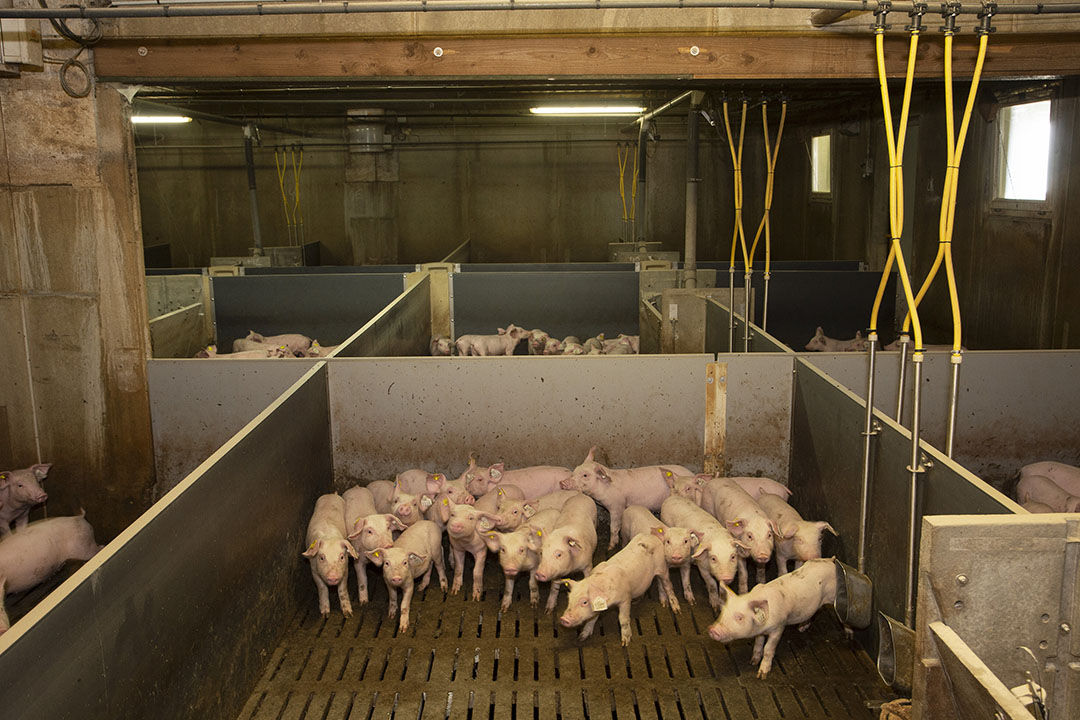
The sows wean an average of 14.5 piglets per litter. Weaning weight is 7.8 kg and the pre-weaning mortality rate on this farm is below 10%. From 3 days of age, the piglets receive a pre-starter. Initially provided on a mat on the floor, the pre-starter is offered in feeding bowls from two weeks of age.
No piglet vaccinations
The piglets – and later parent stock (PS) sows – do not receive any vaccinations at this breeding farm. There is an agreement with buyers that they will vaccinate the animals as soon as they are in their premises. The farm breeds its own F1 sows. Every 3 weeks, Gigou delivers between 150 and 200 Vénus PS gilts. So far, they have all gone to French breeders. The breeding farm prefers to serve the domestic market first. But there is now enough supply to also export Venus sows. The GP breeding sows on the farm are vaccinated against parvovirus, Porcine Circovirus type 2 (PCV2) and Escherichia coli. As the farm has SPF levels, antibiotics usage is very low, the pig farmer claims.
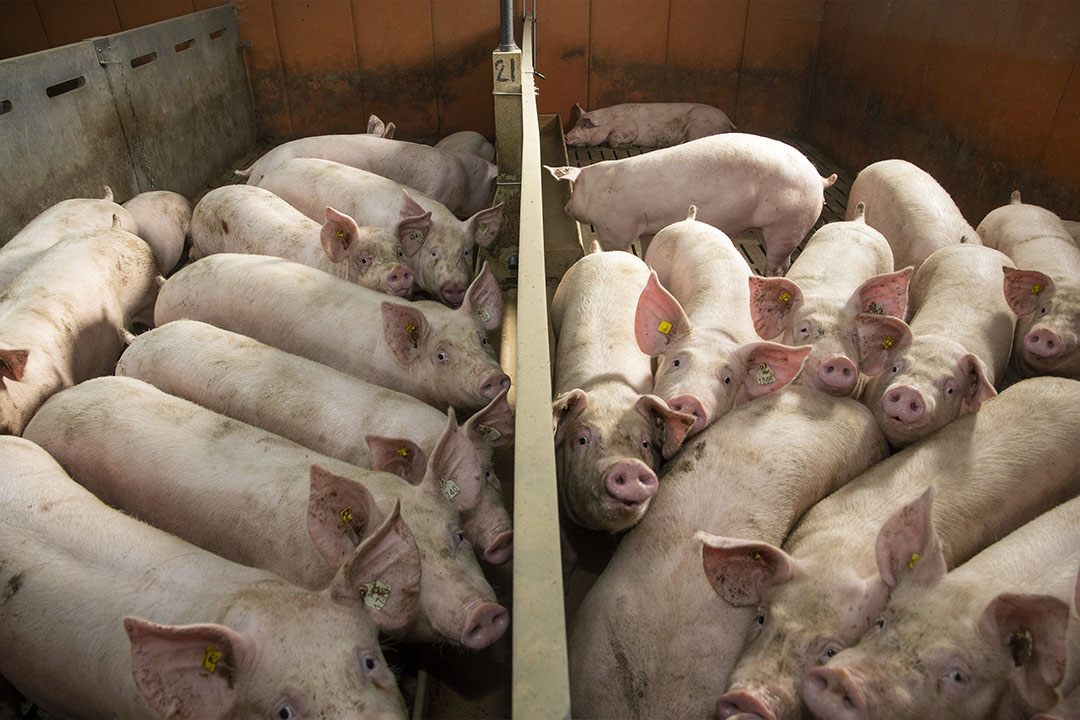
Fully slatted floors
Just like the rest of the farm, the lactation and grower house are austere, yet very neat. A fully slatted floor is allowed in France and that is what is applied throughout at SAS Gigou. There are concrete slats in the lactation and grower houses.
Beautiful, uniform sows
The animals perform well and grow into beautiful, uniform sows. The growth in the weaner pig house (from 8 kg to 25 kg) is 480 g/day. In Gigou’s experience, it is especially important that the piglets do not grow too fast. To have better control over the weaned piglets’ gut health, they are the only production group on the farm to receive complete compound feed, in dry form. The sows and rearing stables are fed liquid feed, using raw materials from their own land.
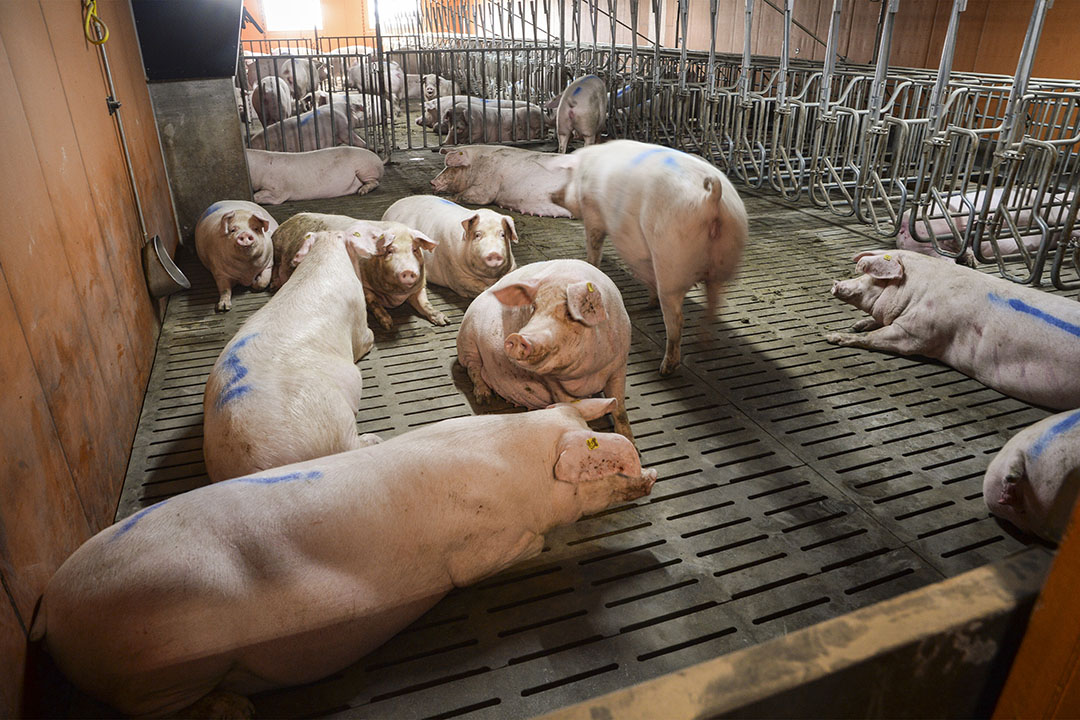
Job satisfaction
The pig producer visibly enjoys his work, appreciating the switch to breeding SPF sows and taking part in the Axiom breeding programme. Gigou says, “I am glad that Axiom gave me the confidence to take this path. That gives me recognition and that feels good. I can also make a small contribution with healthy animals to raise the level of the entire sector a little.”
Gigou is definitely trying to make the most of it. That shows in the farm’s organised way of working, exemplified in how the work is signed off as soon as it is finished. There is a book in the central corridor in which Gigou and the employees write down very neatly what they did that day, what stood out or perhaps was different from usual. This way, everyone stays involved in keeping the farm going – and ideas are generated for improvements.
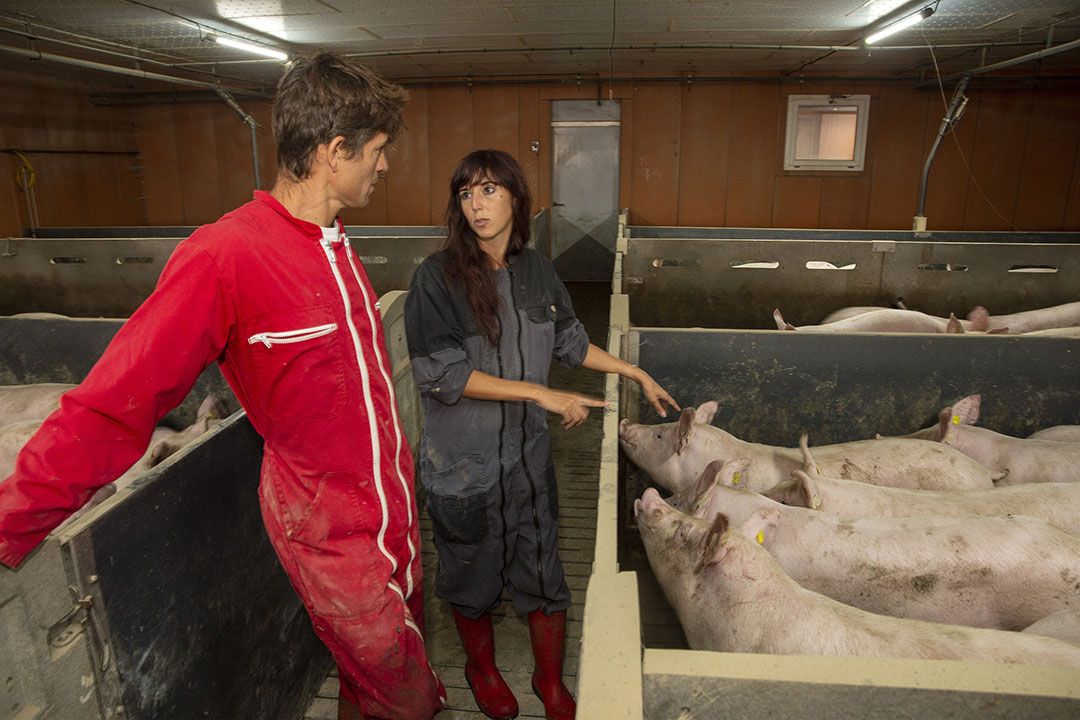
Company cleanliness
Especially in terms of hygiene, the pig producer goes the extra mile. The manure pits underneath the pig houses are 2 m deep, and separated by walls. Each department with gestating sows has its own manure storage. The well is also cleaned once a year. This is not the most attractive job, and for that reason Gigou does this himself. The cleanliness will help keep the farm free from large fly populations by the end of summer.
Animal health is monitored every 3 months by the farm’s own veterinarian. Ultimately responsible for the F1 gilt health claims, however, is Axiom veterinarian Harmonie Lamarque. When selecting the gilts, checks are carried out for the presence of Porcine Reproductive and Respiratory Syndrome (PRRS) as well as Mycoplasma hyopneumoniae (M. hyo).
 Beheer
Beheer

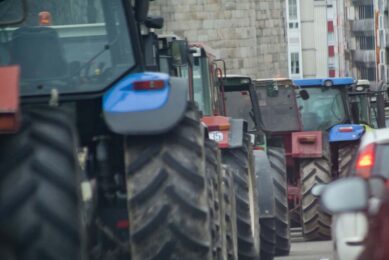
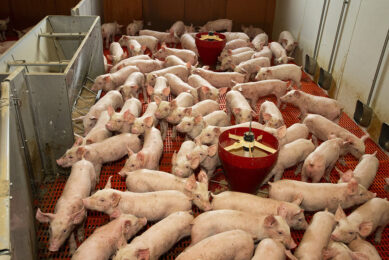
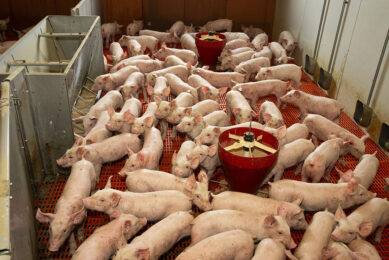
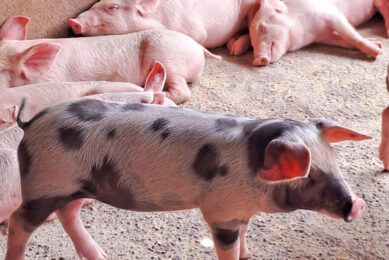



 WP Admin
WP Admin  Bewerk bericht
Bewerk bericht